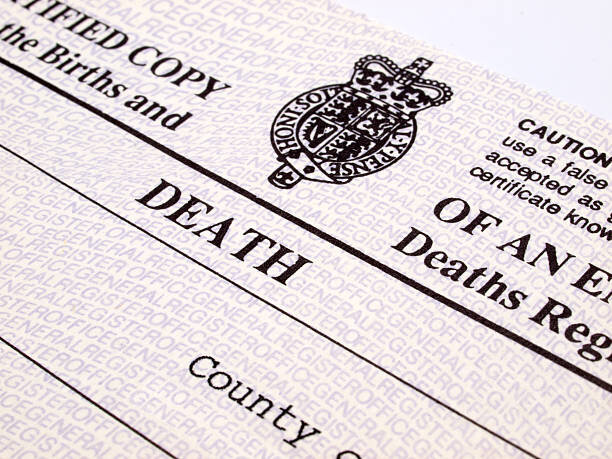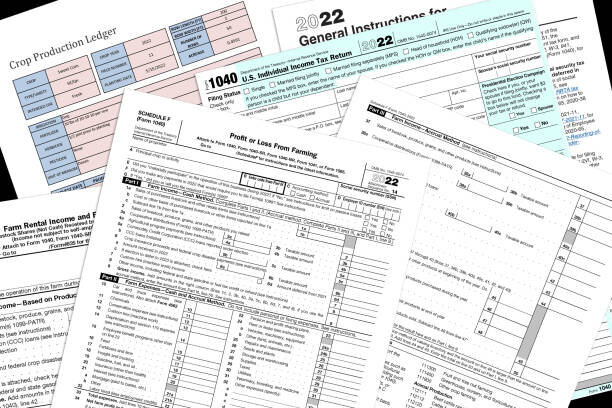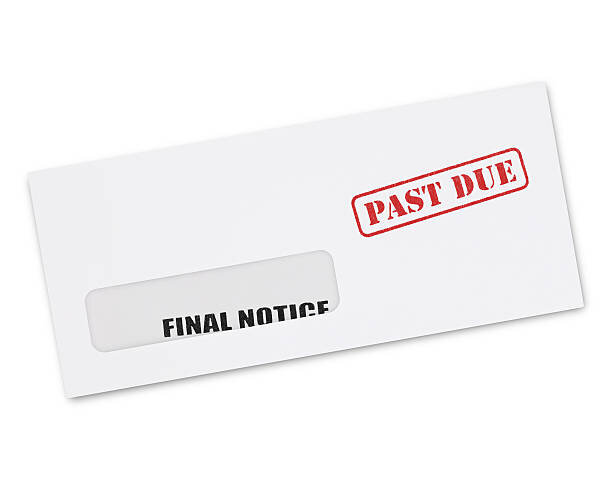
What Happens When You Inherit a House in PA?
Unlocking the Secrets of Inheriting a House in Pennsylvania
Imagine you’ve recently inherited a house in Pennsylvania. Your state of mind is a mixture of confusion, curiosity, and a dash of apprehension. You’re seeking answers, clarity, and guidance on various aspects. You probably have specific questions and concerns on your mind, such as:

- Do I have to pay the PA inheritance tax on my parent’s house?
- How do I avoid inheritance tax on my house in PA?
- What’s the process when there’s no will in Pennsylvania?
- Is selling the inherited property a viable option, and if so, what are the tax implications?
In this blog, we’re here to provide you with the exact value you’re searching for. We’ll explore the intricacies of inheriting a house in Pennsylvania, the implications of inheritance tax rates, strategies to minimize federal estate tax and burdens, the intestate succession process, and the option of selling the inherited property. Our aim is to equip you with the knowledge and information you need to make well-informed decisions regarding your inherited property.
Inheritance Tax in Pennsylvania
When inheriting a house in Pennsylvania, understanding the inheritance tax is essential. Pennsylvania enforces an inheritance tax on the transfer of assets from a deceased individual to their beneficiaries. The tax rate varies based on the relationship between the deceased person (decedent) and the beneficiary. Here’s a straightforward breakdown:

- Surviving Spouse: If you’re a surviving spouse inheriting the property, you’re in luck. Pennsylvania does not impose an inheritance tax on surviving spouses.
- Lineal Heirs: This category typically includes children. Lineal heirs are subject to a 4.5% tax rate.
- Siblings and Distant Beneficiaries: Beneficiaries less closely related to the decedent face a higher tax rate of 12%.
Understanding these tax rates is crucial for informed financial planning and managing potential estate tax obligations.
This knowledge forms the foundation for navigating property inheritance intricacies, estate tax strategies, and the wider landscape of probate processes and intestate succession in Pennsylvania. Let’s continue to equip you with the insights needed for a smooth transition in the entire estate process.
The Probate Process

Inheriting a house is a significant event, and it often involves navigating the probate process. This legal procedure is crucial for administering the entire estate left behind by the deceased individual, and it includes the distribution of assets, which may encompass real property such as the inherited house. Becoming familiar with the steps involved in probate proceedings and understanding the legal requirements in Pennsylvania is of paramount importance.
The probate process is typically a multi-faceted journey that involves several essential steps to ensure a smooth transition of the inherited property:
 Filing a Petition with the Local Probate Court: The process commences with the filing of a formal petition with the local probate court. This initiates the legal proceedings required to settle the decedent’s estate.
Filing a Petition with the Local Probate Court: The process commences with the filing of a formal petition with the local probate court. This initiates the legal proceedings required to settle the decedent’s estate.
 Notifying Heirs, Beneficiaries, and Creditors: Once the petition is filed, it is essential to notify all interested parties, including heirs, beneficiaries, and creditors. This notification process ensures that everyone with a stake in the estate is aware of the proceedings.
Notifying Heirs, Beneficiaries, and Creditors: Once the petition is filed, it is essential to notify all interested parties, including heirs, beneficiaries, and creditors. This notification process ensures that everyone with a stake in the estate is aware of the proceedings.
 Managing the Decedent’s Debts and Expenses: The probate process also involves managing the debts and expenses of the deceased. This includes settling outstanding financial obligations, which may include mortgages, loans, unpaid bills, or other financial responsibilities.
Managing the Decedent’s Debts and Expenses: The probate process also involves managing the debts and expenses of the deceased. This includes settling outstanding financial obligations, which may include mortgages, loans, unpaid bills, or other financial responsibilities.
 Distributing the Remaining Assets: After addressing debts and expenses, the remaining assets are distributed among the rightful beneficiaries. In the case of inheriting a house, this step may involve transferring ownership of the inherited property to the designated heirs.
Distributing the Remaining Assets: After addressing debts and expenses, the remaining assets are distributed among the rightful beneficiaries. In the case of inheriting a house, this step may involve transferring ownership of the inherited property to the designated heirs.

Understanding and navigating the probate process is essential for anyone who has inherited a house in Pennsylvania. It helps ensure that you comply with the legal requirements and procedures, ultimately facilitating a seamless transfer of the inherited property. Additionally, having a comprehensive grasp of the probate process allows you to make informed decisions and manage the estate efficiently.
This understanding sets the stage for a well-informed approach to your inherited property, whether you decide to retain it, sell it, or explore other options to maximize its value and benefits. The knowledge gained during the probate process is instrumental in guiding your actions and decisions concerning your newly inherited house.
Selling an Inherited Property in Pennsylvania
When you find yourself in the unique position of inheriting a house, one of the critical decisions you’ll face is whether to retain the property or explore the option of selling it. This decision carries significant weight and requires careful consideration, given the various aspects to evaluate.

The choice to sell an inherited property becomes especially practical when certain circumstances come into play. For instance, if the property necessitates significant maintenance, renovations, or repairs, you might find selling it a more sensible route, sparing you from the burden of addressing these issues. Additionally, the intended beneficiaries of the property may prefer the liquidity of cash over the ownership of real estate. Selling inherited property can provide an equitable solution in such cases.
However, before proceeding with the sale of an inherited property, several factors merit your attention. Understanding these considerations is crucial to make an informed decision:
Market Value: Evaluating the property’s market value is a foundational step in the process. An appraisal or consultation with a real estate professional can provide insights into the property’s current worth. This information is pivotal in determining an appropriate selling price.
Condition: The condition of the inherited property plays a significant role in the selling process. The property may require repairs, renovations, or updates to enhance its market appeal. Alternatively, selling it as-is is a common approach, eliminating the need for costly improvements and simplifying the selling process.
Estate Tax Implications: Estate taxes may come into play when selling an inherited property, depending on the value of the estate. Understanding the potential tax consequences is essential for managing your financial obligations effectively.



Navigating these aspects can be a complex process, but rest assured, you don’t have to undertake this journey alone. If you find yourself considering the sale of your inherited property and wish to pursue a hassle-free and streamlined approach, Recommended Home Buyers specializes in buying properties as-is for cash. Our expertise in this realm can save you both time and money compared to the traditional real estate market.
Now, having discussed selling inherited property, let’s explore strategies to reduce Pennsylvania inheritance tax and navigate intestate succession. These insights will help you make well-informed decisions about your inherited property.
Read more in our blog: 3 Things You Can Do In Philadelphia to Prepare Your Inherited House For The Sale
Avoiding Pennsylvania Inheritance Tax
Inheritance tax in Pennsylvania is a substantial concern for those who’ve recently inherited a property. Fortunately, there are strategic approaches to mitigate or eliminate the impact of this tax burden on your inherited assets. Let’s delve into these strategies with a deeper focus on how to safeguard your estate:
- Transfer on Death (TOD) Deed: This is a powerful tool to consider. With a TOD deed, property owners can designate a specific beneficiary who will seamlessly inherit the property upon their demise. By bypassing the probate court process, the inheritance tax implications can be minimized. It’s a proactive measure that ensures a smoother transition of property to your chosen beneficiary while mitigating the potential tax burden.
- Estate Planning Attorney: Collaborating with an experienced estate planning attorney can be an invaluable step. These professionals specialize in developing comprehensive strategies to safeguard your estate and reduce inheritance tax obligations. They can offer personalized guidance tailored to your specific circumstances. By leveraging their expertise, you can explore legal avenues that will help you retain more of your inherited property’s value.
- Utilize Tax Exemptions: Pennsylvania offers certain exemptions from inheritance tax. For instance, if you’re a surviving spouse, you’re generally exempt from this tax. By fully understanding and utilizing these exemptions, you can significantly reduce your tax liabilities and protect more of the assets you’ve inherited.
- Gift Tax Considerations: Exploring gift tax implications may also be a part of your overall strategy. Gifting assets during your lifetime can be a tax-efficient way to pass on your wealth to your loved ones and reduce potential inheritance tax burdens. However, it’s essential to consult with tax professionals to navigate the complexities of gift tax regulations.
- Lifetime Planning: Long-term financial planning and estate management are integral components of inheritance tax mitigation. Planning early, considering the impact on your estate, and making informed decisions are key. By integrating your inheritance goals into your broader financial plan, you can safeguard your wealth and the assets you intend to pass on to future generations.




Reducing inheritance tax is a common goal, but remember, each situation is unique. Consult financial and legal experts to tailor your approach, protecting your inherited property and minimizing your inheritance tax return and burden.
As we explore Pennsylvania inheritance taxes, laws, probate processes, and property considerations, these strategies will enhance your understanding. Whether you keep, sell, or explore other options for your inherited property, being well-informed about your inheritance rights and taxes is crucial.
Intestate Succession in Pennsylvania
In cases where the decedent did not leave a valid will, the rules of other forms of intestate succession come into play. Intestate succession determines how the decedent’s entire estate’s assets, including real estate, will be distributed among the surviving spouse and heirs.
In Pennsylvania, intestate succession law prioritizes surviving family members, such as spouses, surviving children, and parents. The order of distribution depends on the law and the degree of familial relationship and can vary based on specific circumstances and certain laws.
Understanding intestate succession is crucial if a person dies and there is no will, as it ensures the property is distributed in accordance with Pennsylvania law.
Surviving Spouse Rights When Inheriting a House in PA

In some cases, disputes may arise among family members concerning the amount same inheritance rights of a property after death. It’s important to understand the rights of surviving children, spouses, and other heirs to prevent conflicts and legal challenges.
Surviving spouses, for instance, or a child may have certain rights to the decedent’s estate, even if the deceased had no will or explicitly disinherited certain assets to the child or spouse. These rights, often referred to as the elective share, ensure that the surviving child or spouse receives a portion of the decedent’s estate, which may include the inherited home.
Pennsylvania Inheritance Laws
Pennsylvania has specific inheritance laws that govern how inherited property should be handled. These inheritance laws encompass a wide range of issues after an individual’s death, including inheritance, estate tax, probate, and property distribution.
Familiarizing yourself with Pennsylvania’s inheritance laws is essential for ensuring compliance with all legal requirements and making informed decisions regarding the inherited property.
What Happens If You Inherit a House with a Mortgage?
inheriting a house with an existing mortgage adds an extra layer of complexity to the situation. Beneficiaries may wonder about their responsibilities, inheritance rights, and options in such cases.

Understanding Mortgage Responsibilities
When you inherit a property with an existing mortgage, it’s essential to grasp your obligations and make informed decisions. Typically, inheriting a mortgaged property means that the beneficiary becomes responsible for the mortgage payments and outstanding debt.
Reviewing Mortgage Terms
Reviewing the mortgage terms is a crucial first step. Examine details such as interest rates, monthly payments, and the outstanding balance. Understanding these terms will help you make well-informed choices regarding the property.
Options for Handling the Mortgage
Several options are available for handling a mortgaged inherited property:
- Continuing Mortgage Payments: Beneficiaries can choose to continue making the mortgage payments and take ownership of the property. This option can be suitable if multiple heirs are involved.
- Selling the Property: Alternatively, beneficiaries can decide to sell the property. The proceeds from the sale can be used to pay off the mortgage, settle any taxes owed, and distribute the remaining funds among the heirs.
Having a clear understanding of these options and your mortgage obligations is vital when inheriting a property with an existing mortgage. It allows you to navigate this complex situation more effectively and make choices that align with your best interests and those of other heirs.
When to Hire a Real Estate Agent
Selling an inherited estate or property in Pennsylvania can be a multifaceted and complicated process. While some individuals choose to sell their estate assets directly to cash home buyers like Recommended Home Buyers, others opt to work with a real estate agent.

Real estate agents are experts in the local property market and can assist in pricing, marketing, and selling the property. They can provide guidance on staging the home, attracting potential buyers, and negotiating offers.
However, it’s important to note that hiring a real estate agent typically involves commissions and fees, which can impact the overall proceeds from the whole estate sale.
Exploring Additional Considerations
In addition to the key topics discussed above, there are several other relevant factors to consider when inheriting a house in Pennsylvania. These include property tax, potential outstanding debts, and the involvement of charitable organizations as beneficiaries.
Property Tax Implications
1. Property Tax Basics
- Property taxes are obligatory payments made to local government authorities.
- The tax amount depends on factors like the property’s assessed value and local tax rates.
2. Inherited Property and Tax Responsibility

- When you inherit a house in Pennsylvania, you assume responsibility for property taxes.
- Ensure you’re aware of the assessed value and current tax rates to understand your tax obligations.
3. Addressing Outstanding Property Taxes
- Check if there are any unpaid property taxes from the time of the decedent’s death.
- Resolving these outstanding tax payments is crucial to avoid complications during the property’s sale or transfer.
4. Proactive Tax Planning
- Engage in proactive tax planning to ensure you’re financially prepared for property tax payments.
- Seeking professional advice can help you navigate the intricacies of property tax laws and obligations effectively.
Outstanding Debts and Liabilities
Inherited properties can sometimes come with outstanding debts or liabilities. It’s essential to conduct a thorough review of the decedent’s financial obligations to ensure they are properly addressed. Common types of debts that may need to be settled include:
- Mortgage loans
- Home equity loans or lines of credit
- Property maintenance and repair costs
- Unpaid utility bills
Clearing these outstanding debts is essential to secure a clean title for the property and ensure a smooth transfer or sale.

Charitable Organizations as Beneficiaries

In some cases, individuals may choose to designate charitable organizations or exempt institutions as beneficiaries of personal property in their wills. When you inherit a property where a charitable organization is involved, there are specific considerations to keep in mind.
The process of distributing assets to charitable organizations and government entities may involve legal requirements and paperwork. It’s advisable to consult with legal and financial professionals to ensure compliance with all relevant laws and regulations.
Curious About How To Price Your Inherited Home in Philadelphia for Sale?
Dive deeper into this topic in our comprehensive guide on How To Price Your Inherited Home In Philadelphia For Sale. We delve into the intricacies of determining the fair market value of inherited property, offer insights on selling an inherited house, and explore valuable advice for those dealing with inherited homes. Uncover the strategies to make informed decisions about your inherited property and get started on your journey to a successful sale.
Selling Your Inherited Property with Ease
Are you ready to make well-informed decisions about your inherited property? When it’s time to sell your inherited property, look no further than Recommended Home Buyers. We buy houses in Philadelphia, and specialize in buying properties as-is for cash, offering a hassle-free and cost-effective solution. Complete our online form or Contact us to get started on your journey to a successful sale.

